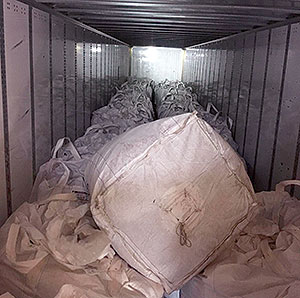Senior Reporter
Law Enforcement Officers Challenged to Enforce Bill Legalizing Transport of Hemp, CVSA Says

Conflicts between existing state laws and a new federal law legalizing the transport of industrial hemp are making it difficult for law enforcement officers to enforce the new law, the head of the Commercial Vehicle Safety Alliance told officials at the U.S. Department of Agriculture.
“I am here to raise some practical considerations with implementation of the hemp transportation provisions outlined in the 2018 Farm Bill,” Collin Mooney, executive director of CVSA, told the agency’s Agricultural Marketing Service during a listening session March 13.

Mooney
Industrial hemp is a member of the cannabis plant family that is absent the high levels of tetrahydrocannabinol, or THC, responsible for the psychoactive effects of marijuana.
Although the bill was signed into law by President Donald Trump in December, it has yet to be codified in federal agriculture regulations. Officials expect to complete a rulemaking for the farm bill by the end of 2019.
One of many commenters at the public session calling for more specific guidance, Mooney complained during the session that some states either have laws that still classify hemp illegal and lack any formal federal guidelines to take those laws off the books — or they are fighting in court to keep their law.

Idaho State Police confiscated this load of industrial hemp in January. (Idaho State Police)
So far, truck drivers in at least three states have been arrested on trafficking charges for transporting hemp. The most recent instance, a hemp arrest and seizure of 6,700 pounds of the product near Boise, Idaho, is being reviewed by the 9th U.S. Circuit Court of Appeals.
Such legal questions prompted American Trucking Associations last month to issue a recommendation that motor carriers “continue to exercise caution” in accepting shipments of hemp.
“Industrial hemp plant looks like the marijuana plant and cannot be distinguished by appearance or odor,” Mooney said. “Currently, available field kits can only measure whether THC is present in a sample regardless of concentration. As a result there is not yet a way to critically measure the amount of THC present quickly and accurately roadside in order to verify that the hemp material being transported is below the allowed 0.3% THC threshold.”
In addition, Mooney said that testing labs are so backlogged that they cannot quickly evaluate the precise THC levels, leading to “unavoidable delays in traffic stops and even maybe mistaken arrests.”
Also, he said, there are serious concerns within the law enforcement community that the transportation of industrial hemp will be used to mask illegal drugs, including marijuana with higher THC concentrations, putting an additional burden on law enforcement and making it more difficult to effectively combat drug trafficking in the United States.
“Additional guidance from the U.S. Department of Agriculture and the Federal Drug Administration is necessary so the program can effectively and accurately be implemented,” he added.

Walling
While USDA said the economic future looks bright for the industrialized hemp industry, it was clear that farmers, bankers, shippers, marketers, state agricultural officials, attorneys and tribal leaders at the three-hour listening session desperately need the federal agency to act soon in issuing guidance ahead of this year’s hemp growing season.
Sara Walling, administrator for the Agricultural Resource Management Division of the Wisconsin Department of Agriculture, Trade and Consumer Protection, said that nearly 1,461 applicants are seeking licenses to grow hemp in the state this year, an increase from 245 applicants last year.
Other commenters said USDA should offer quick guidance to ensure consistent testing of hemp THC content, make clear the legality of CBD oil extracted from hemp used for a number of common ailments, and help community bankers by quickly issuing regulations providing lending guidance for hemp farmers.




